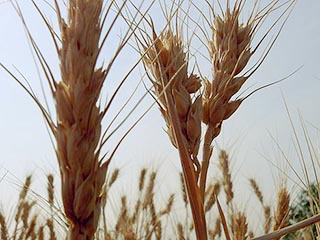
photo: <a href="http://www.flickr.com/photos/cloudsoup/3831741068/" target="_blank">David Jones</a> via flickr.
 Editor’s Note: We’re happy to host a weekly news roundup from our friends over at TreeHugger. Enjoy!
Editor’s Note: We’re happy to host a weekly news roundup from our friends over at TreeHugger. Enjoy!
How the World Can Cut 13 Billion Tons of CO2 Per Year and Save $14 Billion in the Process
Reducing deforestation, improving energy efficiency and working towards a global renewable energy standard of 20% could cut global CO2 emissions by 13 gigatons a year, and save $14 billion at the same time. That’s the conclusion of a new study from the UN Foundation and the Center for American Progress.
New Clean Coal Hazards Revealed: Could Poison Plants, People
Clean coal may be trotted out as the future of the coal industry, but a new study from the University of Toronto confirms what many in the green community have be saying for a while: Scaling up CCS will need an infrastructure rivaling the oil industry, groundwater reserves could be contaminated, adding CCS to coal plants will up to one-third more water intensive, and unexpected leaks could poison animals, plants and people.
UN Forest Protection Scheme Open for Organized Crime Abuse
Two words of warning about the current wording of REDD: Interpol says international criminal syndicates are already eyeing the program and that enforcement with be very difficult. And, the Ecosystems Climate Alliance takes issue with the lack of explicitly protecting intact forests and indigenous peoples.
Will Carbon Capture & Storage Conflict With Mineral & Property Rights?
Here’s one aspect of carbon capture & storage you may not have considered: A new assessment coming out of Carnegie Mellon University raises the issue of conflicts between mineral exploration and areas where CO2 might be injected under CCS schemes. As you wouldn’t be able to exploit those mineral rights in these areas, how and will property owners be compensated?
Stop Crying Wolf! Cap-and-Trade Will Increase Farmer’s Production Costs Less Than 1%
Another nail in the ‘climate legislation will cost too much’ coffin: The Environmental Working Group’s new assessment on the increased costs of production for farmers shows that there will be less than a 1% increase for soybeans, corn, wheat, cotton and rice.







